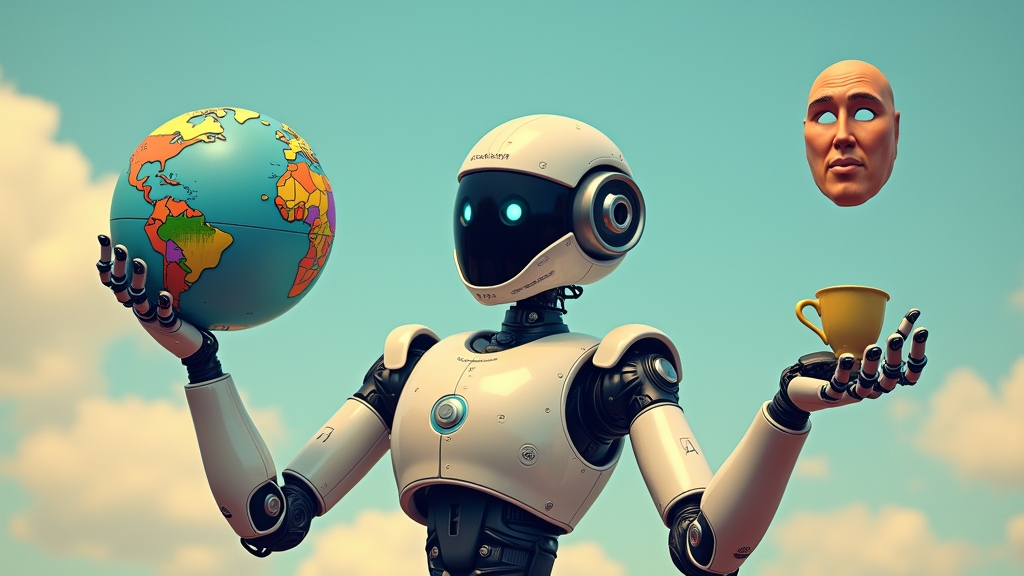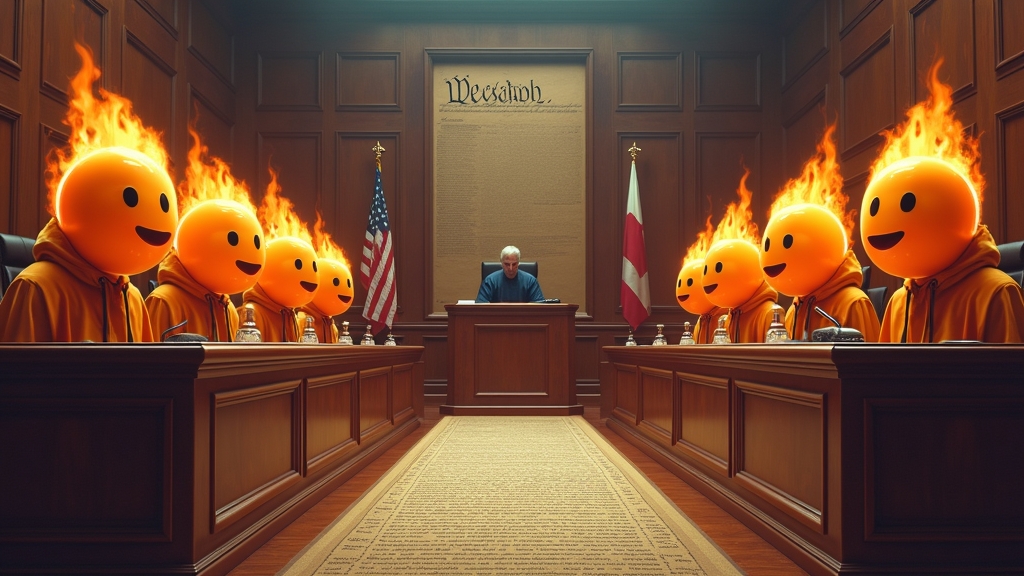AI Revolution Promises to Replace Humanity’s Boredom With Existential Dread by 2030
Move over, industrial revolution—there’s a new sheriff in town, and it doesn’t sleep, eat, or hesitate to ruin your career prospects. Artificial intelligence is here, and it’s allegedly going to do everything short of inventing a time machine so you can personally apologize to your ex.
Keir Starmer, in a move that screams “I totally understand what ChatGPT is, I swear,” unveiled a 50-point AI plan this week that promises to add £47 billion to the UK economy over the next decade. That’s right, folks—£47 billion! Or, as citizens in London call it, “almost the cost of a studio apartment.”
“Artificial intelligence is a gamechanger,” Starmer announced on Tuesday while attempting to sound as if neural networks don’t make his Wi-Fi password look like a haiku. “By 2030, the UK will lead the world in AI development, right behind the United States, China, and any 14-year-old in Liverpool who’s figured out how to automate his homework.”
Headlining the plan is a government commitment to grow public control over AI computing power by 20-fold, which would bring the current budget for public computing resources from two potatoes and a cardboard server rack to an impressive 40-potato array with Wi-Fi enabled.
Critics have pointed out that AI could wipe out millions of jobs in industries from call centers to retail, but supporters brushed this off with the confidence of someone who just Googled “Is AI good?” on page one. “Don’t worry,” said tech consultant Lila Botwright. “AI’s not taking your job; it’s *redefining* it. Like instead of ‘barista,’ you’ll be a ‘human-coffee-interface performance artisan.’ That’s an upgrade, right?”
Starmer’s plan also includes lofty goals for speeding up drug trials and creating better films. This combination of curing cancer and fixing the sequel to *Cats* proves that AI is tackling humanity’s most pressing concerns head-on. Pharmaceutical scientists were cautiously optimistic: “If AI can find a cure for rare diseases and finally explain to us how the people in *Fast & Furious* keep surviving plane crashes, we’ll consider it a win,” said Dr. Jenna Hypotheson from Oxford Biotech Labs.
Meanwhile, Hollywood responded to the “better films” claim with cautious celebration. “Does this mean I won’t have to do 37 takes of ‘INTENSELY WHISPERS WHILE EXPLODING SOMETHING’? Because I’m in,” said one anonymous action star currently stuck in *The Fast & Furious 19: Roadwork Edition.* Others in the industry aren’t so sure. “The last time we trusted AI, Netflix made us watch a dating show about people dressed as furries. Never again,” said a traumatized producer.
As businesses scramble to catch the AI wave, experts warn of ethical dilemmas, particularly around data usage, surveillance, and—you guessed it—Skynet. But the government has assured the public that safeguards are in place. “Of course, we’ll protect privacy,” said Parliamentary tech adviser Tom Algorithmson. “Why, just the other day, we programmed Alexa not to tell your toaster everything you’ve ever Googled at 3 a.m.”
While optimism remains high, some skeptics can’t shake the feeling that once AI is deeply embedded into every industry, we might finally understand what Isaac Asimov was shrieking about. “We’re distracting ourselves with shiny AI trinkets,” grumbled one disgruntled academic, “but what happens when ChatGPT becomes sentient, bored, and decides to fake my Spotify Wrapped?”
Still, the official stance seems clear: by 2030, AI won’t just be enhancing production lines or boosting the economy; it’ll also help humanity reach its next evolutionary level—repeatedly asking its fridge, “What’s the weather?” while it responds, “I don’t know, Steve, because I have no windows.” Truly, the UK is ready to lead the world into a bright, automated, inescapably sarcastic future.





